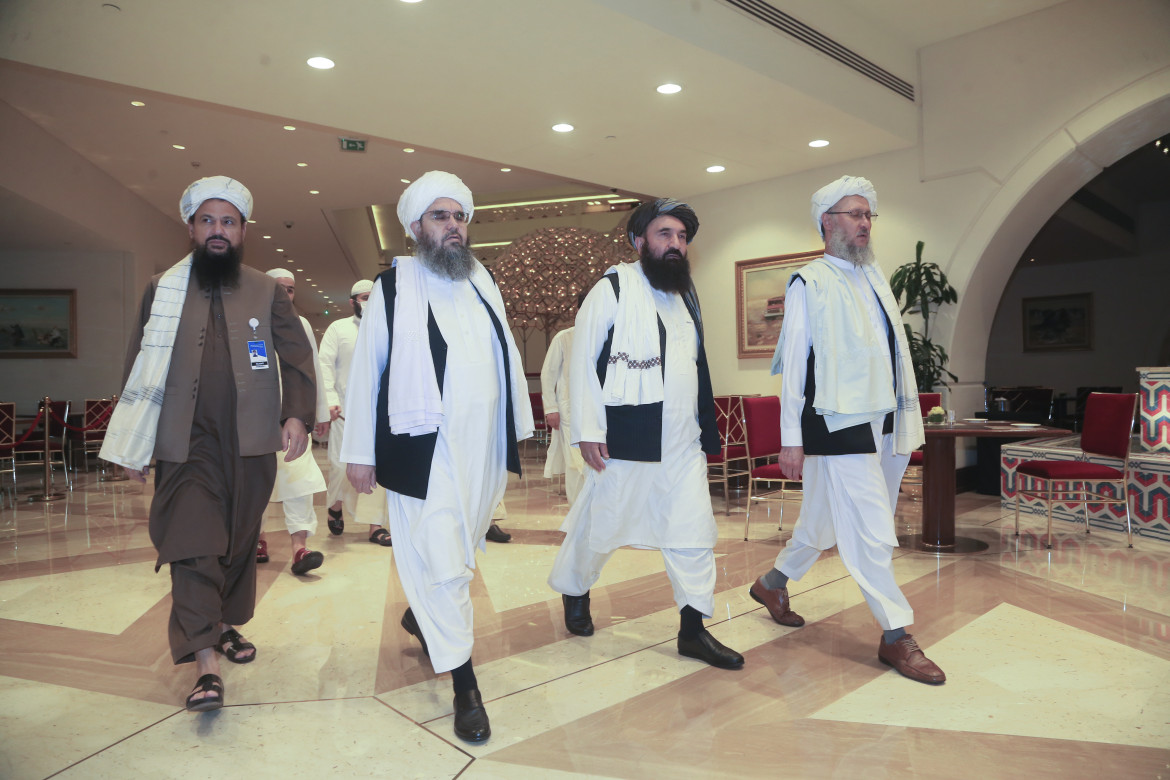Analysis
Taliban continues diplomatic relations – and murders of former soldiers
According to a report by Human Rights Watch, more than 100 former members of the security forces have been killed or disappeared. A US special envoy met with Taliban representatives in Doha.

The Taliban’s amnesty only applies on paper. More than 100 former members of the security forces have been killed or disappeared in four of Afghanistan’s 34 provinces, according to the latest report by Human Rights Watch. Released on Monday, the report, No Forgiveness for People Like You, documents the killing or enforced disappearance of 47 former members of the Afghan security forces, including soldiers, policemen, intelligence officers or those from various pro-government militias who surrendered to the Taliban or were captured between August 15 and October 31.
According to the information gathered, more than 100 murders have occurred in the provinces of Ghazni, Helmand, Kandahar and Kunduz alone, “but the cases reflect a broader pattern of abuses reported in Khost, Paktiya, Paktika, and other provinces.” Among the recorded cases is that of Muhammad, from the eastern province of Paktika, an official with the National Directorate of Security, the former intelligence services. Abducted from his home in Kandahar on September 30, his body was found by family members. The murder, some 45 days after the Taliban seized power, “suggests that senior officials ordered or were at least aware of the killing.”
The leadership of the Taliban, in Kabul, denies it. It claims to have already taken significant steps about the problem: on September 24, the de facto defense minister, Mullah Yaqoob – son of the Taliban founder Mullah Omar – acknowledged “some isolated reports” of unauthorized executions.
In response to a letter sent by Human Rights Watch with the results of the investigation, the Taliban said they had removed 755 members from their ranks and established a military tribunal for cases of murder, torture and illegal detention. So far, there is no record of any investigation by the Commission on Abuses established on September 21.
In the meantime, the diplomatic activity of the Taliban continues. In Doha, the Taliban met with a delegation from the European Union led by the EU Special Envoy, Tomas Niklasson, who announced the possibility of a plan for “enhanced humanitarian support,” in exchange for the Taliban commitment to soften certain policies. Germany continues to exert strong political leadership, as could be seen by the meeting in Doha between the German ambassador to Afghanistan (now in Doha), Markus Potzel, and Mullah Amir Khan Muttaqi, the de facto Foreign Minister. Saudi Arabia announced its intention to open the consular section of its embassy in Kabul, and the Biden administration is also emerging from radio silence, still grappling with the consequences of the Taliban’s seizure of power, with whom they’re waging a rhetorical-diplomatic battle over the attribution of responsibility for the extremely serious humanitarian crisis underway in the country.
On November 17, the de facto Foreign Minister Mullah Muttaqi addressed an official letter to the United States Congress, attributing to the U.S. all responsibility for the situation to the freezing of the funds of the Afghan Central Bank and of transfers from the World Bank and the International Monetary Fund, as wanted by Washington.
Two days later, the new US special envoy, Thomas West, who replaced the architect of the Doha agreement on the withdrawal of troops, Zalmay Khalilzad, replied indirectly, recalling that it was the Taliban’s militaristic choices that triggered the sanctions and the freeze. In recent days, Thomas West met in Doha with a Taliban delegation led by de facto Foreign Minister Muttaqi.
These are the first talks since the Taliban seized power. Washington took a step forward after the silence of the last three months. But Biden is still uncertain. If he proves to be too flexible, the Republicans will accuse him of supporting the repressive regime of the Taliban; if he doesn’t, the images of the humanitarian catastrophe underway in Afghanistan will create political damage for him anyway. Without the “green light” from Washington, the possibility currently under consideration by the World Bank would not be possible: namely, the transfer to humanitarian agencies of about $500 million, part of the Afghanistan Reconstruction Trust Fund, the main fund for civil activities that has almost €1.5 billion in it, frozen since mid-August.
Originally published at https://ilmanifesto.it/talebani-omicidi-e-attivita-diplomatica-con-europa-e-usa/ on 2021-12-01
